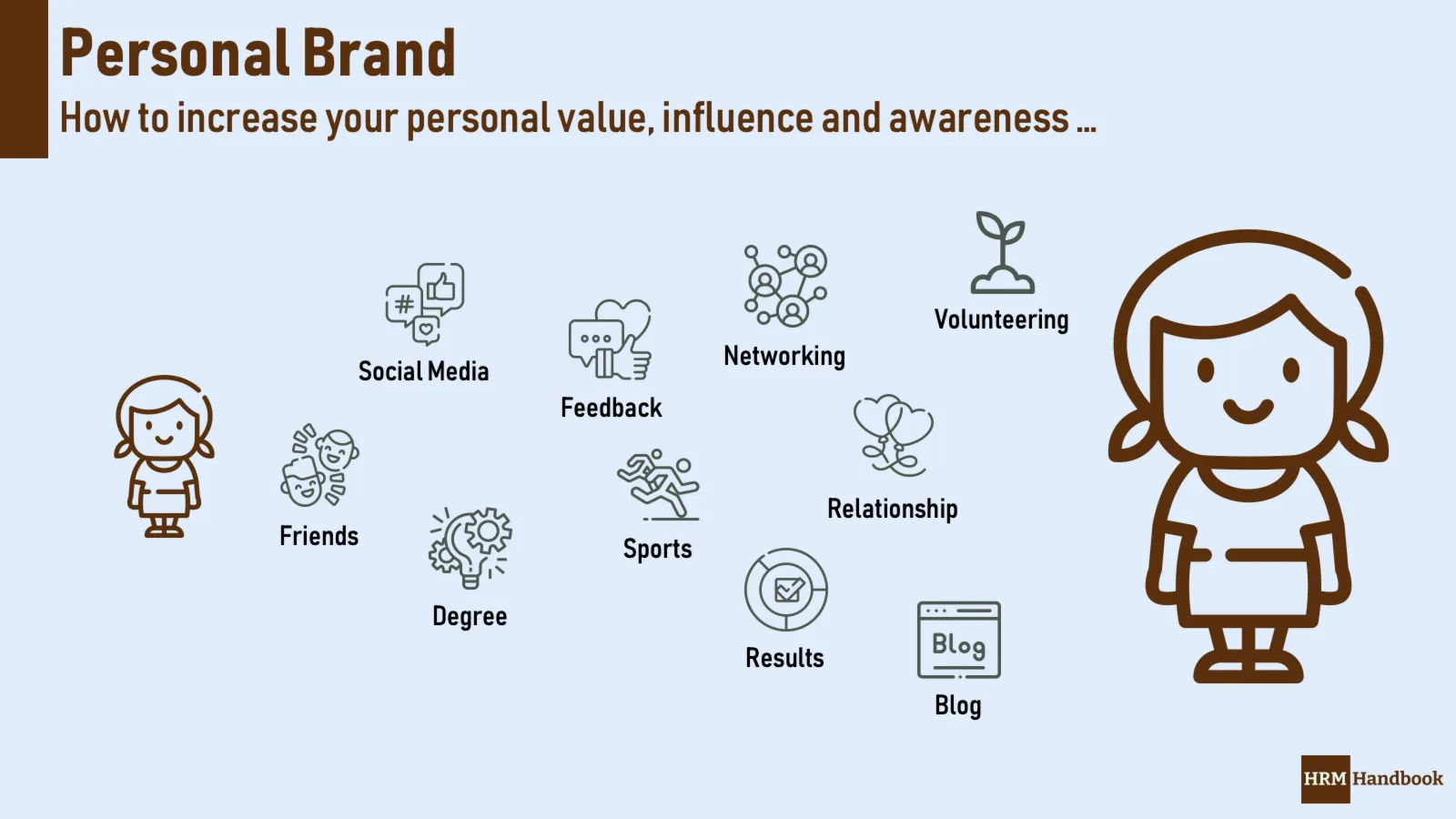Personal Brand
Your personal brand is the way you promote yourself and the impression you make on others around you. It’s the unique combination of skills, experience and personality you want the world to see. It is the telling of your story and how it reflects your behaviors, actions, spoken and unspoken words and attitudes.
You use your personal brand to distinguish yourself from other people. Well executed personal branding can connect you to your business in a way that no corporate branding can.
Professionally, your personal brand is the image people see of you. It can be a combination of how you are viewed in real life, how the media portrays you, and the impression people get from the information that is available about you online.
In a company, it’s a lot about how you come across and the results you are seen to produce. There are some people who are very visible in the company and have a huge impact on results. They may not work hard but their opinion and word is important to others, it’s their personal brand that it’s not good to ignore their opinion as they can make it difficult to move forward. On the other hand, their support can usually remove many obstacles from the way.
You can either ignore your personal brand and let it evolve organically, or chaotically, out of your control, or you can help your personal brand gradually shift to portray you as the person you want to be.

In the days before the internet, your personal brand was really just your calling card. Unless you were high profile in the media or someone who featured prominently as the face of advertising, few people heard of you. In today’s highly public world, where every little thing is discussed at length on social media, you are much less anonymous.
Why should you have a personal brand?
Your personal brand can be very important to you professionally. It’s how you present yourself to current and potential clients. It gives you the opportunity to ensure that people perceive you the way you want to be perceived, and not in some arbitrary, possibly harmful way.
It works the same way within an organization. If you want to make an impact, you need to be visible and be perceived as an important player by those around you. Of course, it’s not just about visibility, it’s also about being able to positively contribute to solving a challenging problem.
Many people in companies cultivate more of a personal brand of problem player that is best avoided. It’s dangerous to put yourself in that position because the environment tries to push that person out of the organization or significantly limit their influence because they don’t contribute to finding good solutions.
It gives you the opportunity to emphasize your strengths and passions. It helps people believe they know you better, and people have much more trust in those they feel they know.
How do you build or change your personal brand?
Creating a personal brand requires extensive self-reflection and introspection. It helps if you know yourself - which surprisingly few people do. Most people find it extremely difficult to describe themselves, although they often find it easier to explain how they would like to be.
If your main goal in building a personal brand is to improve the performance of your business, you first need to make sure you know who your target customers are. You want your personal branding to match your target clientele. The same rules apply to life within your organization.
The important thing to remember, however, is that no one can completely deny their natural personality. This needs to be taken into account when building a personal brand, because an introvert will never become an extrovert. He can shift his behavior partially, but he can’t change completely. Every brand must be believable, and therefore realistic goals must be set.
If I’m by foundation an analytical type who can quickly spot the risks of any project, then I can counter this by not immediately talking about the risks, but it will be difficult to support the project immediately if I don’t get answers on how the risks will be treated as the project progresses.